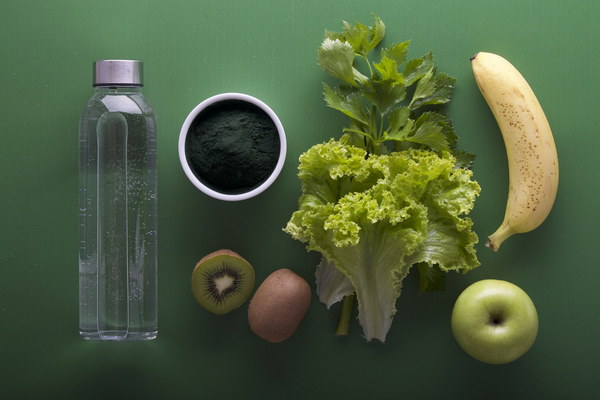Nurturing Your Liver A Comprehensive Guide to Liver Health and Protection
The liver, an indispensable organ responsible for detoxifying the body and regulating metabolism, requires careful attention and care. Known as the body's purification factory, the liver plays a vital role in maintaining overall health. This article aims to provide a comprehensive guide to liver health, focusing on key areas to nurture and protect this vital organ.
1. Understanding the Liver
The liver is a large, reddish-brown organ located in the upper right quadrant of the abdominal cavity. It is approximately the size of a football and weighs about 3 pounds. The liver performs numerous functions, including:
- Filtering blood from the digestive tract to remove toxins and other harmful substances.
- Producing bile, a substance that helps break down fats in the digestive system.
- Storing vitamins, minerals, and glucose for future use.
- Synthesizing proteins and hormones.
- Breaking down old red blood cells.
2. Key Areas to Focus on for Liver Health
To maintain a healthy liver, it is crucial to focus on the following areas:
a) Nutrition
A balanced diet is essential for liver health. Incorporate the following foods into your diet:
- Leafy greens: Spinach, kale, and Swiss chard contain high levels of antioxidants that protect the liver from damage.
- Fruits: Berries, apples, and grapes are rich in antioxidants that help combat liver inflammation.
- Cruciferous vegetables: Broccoli, cauliflower, and Brussels sprouts contain compounds that support liver detoxification.
- Nuts and seeds: Almonds, walnuts, and flaxseeds are excellent sources of healthy fats and antioxidants.

- Lean proteins: Fish, chicken, and turkey provide essential amino acids that aid in liver repair.
b) Hydration
Drinking plenty of water is crucial for liver health. Water helps to flush out toxins and maintain liver function. Aim for at least 8-10 glasses of water daily.
c) Limiting Alcohol Consumption
Excessive alcohol consumption can lead to liver disease. Limit alcohol intake to moderate levels, which is defined as up to one drink per day for women and up to two drinks per day for men.
d) Avoiding Toxic Substances
Minimize exposure to harmful substances, such as:
- Prescription and over-the-counter medications: Some drugs can cause liver damage when taken in excess or for an extended period.
- Industrial chemicals: Exposure to certain chemicals, such as benzene and toluene, can harm the liver.
- Environmental pollutants: Reduce exposure to pollutants by using natural cleaning products and avoiding secondhand smoke.
e) Regular Exercise
Regular physical activity helps to maintain a healthy weight and improve overall liver function. Aim for at least 150 minutes of moderate-intensity exercise or 75 minutes of vigorous-intensity exercise each week.
f) Stress Management
Chronic stress can negatively impact liver health. Practice stress-reducing techniques, such as meditation, deep breathing exercises, and yoga, to maintain a healthy liver.
3. Liver Function Tests
Regular liver function tests can help detect liver disease early. These tests measure enzymes and proteins in the blood that indicate liver health. Consult with your healthcare provider to determine the frequency of these tests based on your risk factors and medical history.
In conclusion, nurturing your liver is essential for maintaining overall health. By focusing on nutrition, hydration, limiting alcohol consumption, avoiding toxic substances, engaging in regular exercise, and managing stress, you can help protect this vital organ. Remember, early detection and intervention can significantly improve outcomes for liver disease. Take charge of your liver health today!









